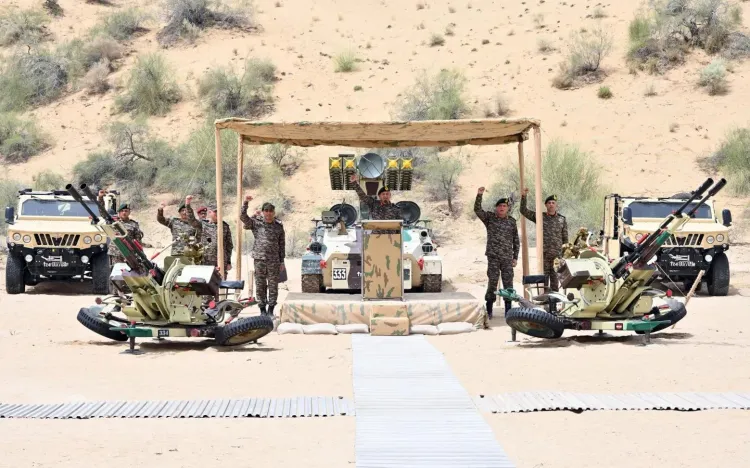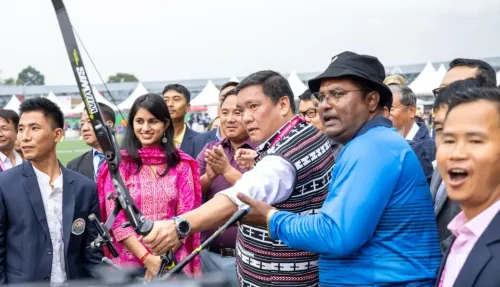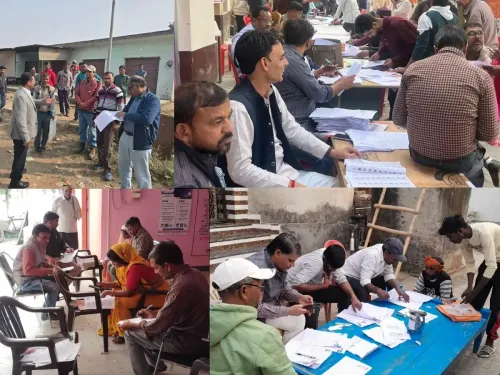How is the Government Enhancing the Army’s Counter-Terrorism Capabilities with Rs 1,982 Crore Deals?

Synopsis
Key Takeaways
- The Indian Army is enhancing its counter-terror capabilities with Rs 1,982 crore in new contracts.
- Procurement includes advanced drone systems and other critical equipment.
- Emergency Procurement mechanisms facilitate swift acquisition to meet urgent needs.
- These actions reflect a dedication to modernizing the Indian Army's operational readiness.
- Recent terror attacks highlight the importance of these enhancements.
New Delhi, June 24 (NationPress) In a major initiative aimed at bolstering the operational capabilities of the Indian Army in counter-terrorism efforts, the Ministry of Defence has finalized 13 contracts valued at Rs 1,981.9 crore through the Emergency Procurement process, as stated in an official announcement on Tuesday.
The essential equipment being acquired includes Integrated Drone Detection and Interdiction Systems, Low Level Lightweight Radars, Very Short Range Air Defence Systems, and Remotely Piloted Aerial Vehicles.
Additionally, the list encompasses Loitering Munitions, including Vertical Take-Off and Landing systems, various drone categories, Quick Reaction Fighting Vehicles, Night Sights for rifles, Bullet Proof Jackets, and Ballistic Helmets.
These contracts, totaling Rs 1,981.90 crore, are part of a broader sanctioned budget of Rs 2,000 crore designated for the Indian Army.
Executed under expedited processes, the procurement aims to improve situational awareness, lethality, mobility, and protection for troops engaged in counter-terrorism scenarios. This acquisition was achieved swiftly to ensure immediate capability enhancement, according to the statement.
These procurements underscore the Ministry’s dedication to equipping the Indian Army with modern, mission-critical, and fully indigenous systems to address evolving security threats. The emergency procurement approach remains a vital tool in closing urgent capability gaps and facilitating the prompt introduction of essential operational gear, the statement elaborated.
This acquisition follows the tragic Pahalgam terror attack on April 22 in Jammu and Kashmir, perpetrated by Pakistani terrorists that resulted in the death of 26 tourists. Investigations have indicated that the attackers were Pakistani nationals, including a former army paracommando.
The support of the Pakistani Army for such terrorist activities was evident when high-ranking military officials attended the funerals of terrorist leaders killed during Operation Sindoor.
In response to a series of drone strikes from Pakistan along the western border, India retaliated by targeting its 11 air bases.









